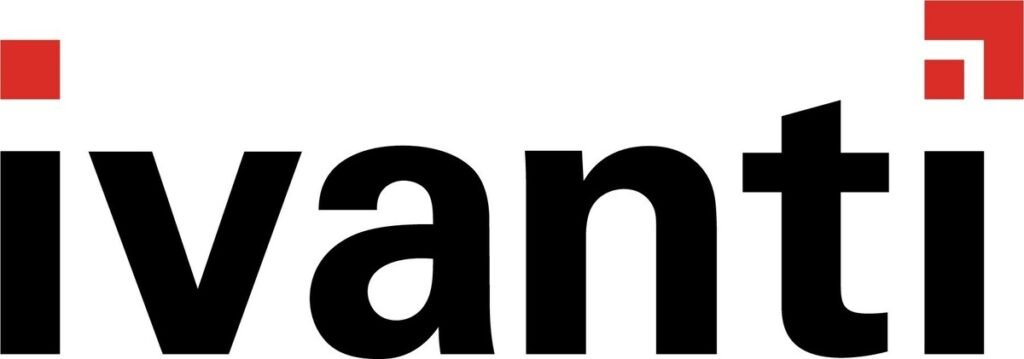In this fast-paced digital era, businesses across the globe are investing heavily in technology. Yet, a new study from Ivanti indicates that these investments may be doing more harm than good—thanks to recurring tech disruptions. According to the 2025 “Technology at Work” report, mounting complexity, redundancy, and outdated systems are draining time, morale, and money, costing organisations millions in lost productivity.
Table of Contents

Complexity and Sprawl: Hidden Thieves of Efficiency
Ivanti’s study reveals that 58% of IT professionals say wasteful spending on unnecessary tech is a serious issue. Over-deploying multiple overlapping tools has led to tech sprawl—disconnected, incompatible systems that don’t play well together.
More than a third of IT workers (38%) identified tech complexity as a major operational barrier—an increase of points compared to the previous year. Underused software licences are another burden: 31% of companies don’t even track them properly.
Tech Debt: Expensive Burden from the Past
Technical debt isn’t theoretical—it is a costly reality. One in three IT professionals describes tech debt as a “very serious” issue, while 48% admit their companies still depend on software that’s reached its end of life.
Outdated hardware is just as damaging—39% say archaic devices drive unnecessary IT spending.
Siloed Data: Collaboration Implosion
Data silos are more than inefficiencies. Over half (55%) of IT professionals say siloed data slows down security responses. Even worse: 35% say silos weaken their organisation’s overall security posture, 40% say it hampers IT efficiency, and 37% say it stifles collaboration across departments.
The Financial Toll: Waste, Redundancy, and Over-provisioning
When IT budgets leak, it’s often because of redundancies. Ivanti reports that 43% of waste stems from redundant applications, and 39% results from over-provisioned cloud resources.
Moreover, deploying new software frequently increases help-desk ticket traffic: 46% of IT staff report this spike.
Security isn’t spared either. Around 37% of IT professionals feel tech infrastructure complexity prevents them from implementing basic security protocols.
Invisible Losses: Poor Visibility and Bad Asset Tracking
Losses often happen under the radar. Fifty-seven percent of respondents said their leadership lacks clear visibility into IT inefficiencies or what drives them.
Asset tracking is also weak: only 35% of firms track device age or location; just 37% monitor patch status. Without this visibility, organisations risk financial and operational inefficiency.
AI: Not a Silver Bullet—Unless Foundations Are Fixed
The report notes that enterprises are banking on AI to fix inefficiencies through tools like AI-powered help desks or proactive diagnostics. Yet AI can’t overcome chaos. Unless organisations first dismantle sprawl and tech debt, AI investments will fall short.
Silos are also a problem—AI needs clean, accessible data to work effectively. Without that, both ROI and trust in tech will erode.
Human Nature: Shadow AI and Rogue Tools
Adding another layer, Ivanti uncovered that 46% of office workers are using AI tools not provided by their employers—often secretly. Many staff believe unauthorised tools give them an edge: 36% admitted to hiding their AI use for that reason.
IT professionals aren’t immune either—38% admit to using unsanctioned AI tools.
Why This Matters—Especially for Nigerian Businesses
Here in Nigeria, enterprises of all sizes are embracing digital transformation—from banking institutions to tech startups. But what this report shows is that your organisation’s productivity, staff morale, and bottom line are being undermined not by lack of tech, but by excess, fragmentation, and poor execution.
For smaller firms particularly, unnecessary licences and unused software don’t just waste money—they fry budgets. When staff rely on side tools to get work done, it speaks to deeper problems in system trust. Tech that slows people down breeds frustration, not agility.
In sectors like financial services, telecom, or public infrastructure—where uptime, security, and efficiency matter—complex tech makes maintaining compliance and responding to incidents exponentially harder.

How to Stem the Loss—and Reclaim Productivity
Here’s a breakdown of actionable steps Nigerian organisations can take, according to the report and best practice:
Tackling Sprawl and Redundancy
- Audit tech stacks: Identify overlapping tools and consolidate.
- Optimize licences: Track usage and eliminate underused applications.
- Watch cloud costs: Over-provisioning in the cloud is pricey—scale to need.
Shrinking Tech Debt
- Decommission EOL software: Replace unsupported systems promptly.
- Refresh hardware: Budget for device replacements to cut inefficiency.
Dismantling Silos
- Unify data sources: Build centralised monitoring that bridges IT, security, and operations.
- Promote collaboration: Encourage cross-departmental ownership of tools.
Improve Visibility
- Transparent dashboards: Equip leadership with real-time IT efficiency and spend metrics.
- Asset tracking: Implement systems that monitor devices, patches, and lifecycle.
Approach AI Wisely
- Clean house first: Before AI deployment, reduce complexity and silos.
- Ensure governance: Provide approved AI tools and training—don’t let staff go rogue.
Secure AI use
- Train teams on AI hygiene: Insist on safe, policy-compliant use of generative tools.
- Formalise AI provisioning: Offer sanctioned tools that users trust.
The Human Cost: Productivity, Morale, and Resilience
When tech disrupts rather than empowers:
- Employees get frustrated: They resort to workarounds or unsanctioned tools.
- Morale tanks: Invisible inefficiencies become visible stress.
- Productivity drops: Time spent resolving tech issues is time stolen from business goals.
In this context, lost productivity isn’t just a number—it’s delayed performance, missed targets, stressed staff, and a weakened competitive edge.

Conclusion: Better Strategy equals Real Business Value
Ivanti’s report lays bare a critical lesson: It’s not enough to invest in technology. Businesses must invest wisely, streamline relentlessly, and maintain transparency from top to bottom.
In Nigerian context, where every naira counts, the opportunity is clear: Rationalise your tech, empower your teams safely, and reclaim productivity lost to complexity. Only then can AI and new tools pay off the way they’re meant to.
Join Our Social Media Channels:
WhatsApp: NaijaEyes
Facebook: NaijaEyes
Twitter: NaijaEyes
Instagram: NaijaEyes
TikTok: NaijaEyes




